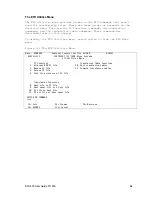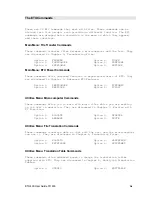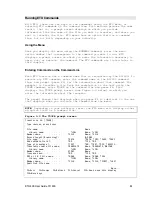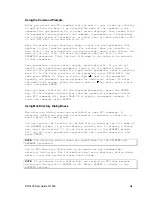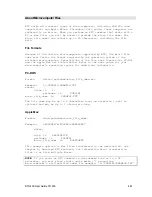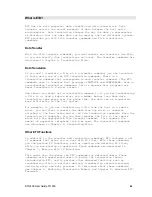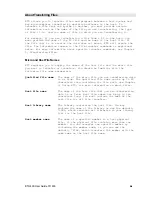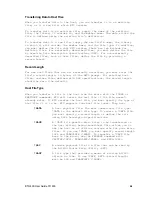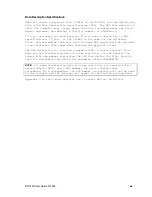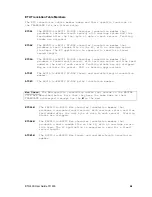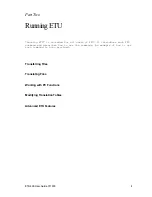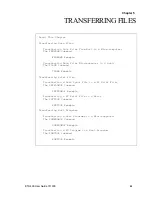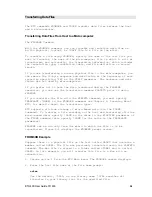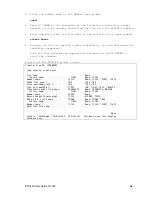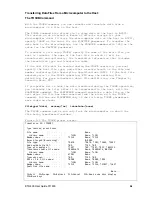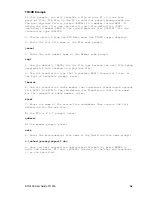
ETU400 User Guide 011603
4-5
Transferring Data to Host Files
When you transfer data to the host, you can transfer it to an existing
file, or to a new file, which ETU creates.
To transfer data to an existing file, supply the name of the existing
file, the library it resides in, and the member name. The data within the
file is defined using the existing file's definition.
To transfer data to a new file, supply the new file's name, the library
in which it will reside, the member name, and the file type. In addition,
you must define the file that ETU creates. There are two methods for
defining files. For externally described files, you must define the file
by creating Data Description Specifications (DDS). For non-externally
described files, such as text files, define the file by providing a
record length.
Record Length
For new host files that are not externally described, you must enter the
file's record length, in bytes, at the RECL prompt. For existing host
files, and new files defined with DDS specifications, the record length
should be zero (the default).
Host File Type
When you transfer a file to the host from the micro with the TO3XB or
PWRTO3XB commands, ETU will create the host file if the file doesn't
already exist. If ETU creates the host file, you must specify the type of
host file it is to be. ETU supports four host file types. They are:
*DATA
A host physical file. The most common host file type.
*DATA is the default file type. To create a *DATA file,
you must specify a record length or define the file
using Data Description Specifications.
*SAVE
A *SAVE file permits micro files to be transferred to
the host without being translated. This allows you to
use the host as an off-line storage site for your micro
files. If you use *SAVE, you must specify record length
1024 and TRANSLATE (*NONE). To transfer a *SAVE file
back to the micro, use the FROM3XB command with
SAVTYPE(*YES), TRANSLATE(*NONE), and RECL(1024).
*SRC
A source physical file is a file that can be read by
the AS/400 Source Entry Utility (SEU).
*SAVF
A file type that provides a means of storing AS/400
objects on line. To use *SAVF, RECL (record length)
must be 528 and TRANSLATE (*NONE).
Summary of Contents for ETU400
Page 1: ...i ETU400 User Guide AS 400FileTransferUtility...
Page 30: ...ETU400 User Guide 011603 2 5 old versions since most users do not modify these tables...
Page 183: ...ETU400 User Guide 011603 10 53...
Page 239: ...ETU400 User Guide 011603 E 1 Appendix E ERRORMESSAGES NATIVEMODE...
Page 264: ...ETU400 User Guide 011603 F 1 Appendix F ASCII EBCDICPRINTABLECHARACTERS...
Page 304: ...ETU400 User Guide 011603 H 1 Appendix H INTERNATIONALTRANSLATIONTABLES...
Page 309: ...ETU400 User Guide 011603 J 1 Appendix J ETUTHROUGHPUTCONSIDERATIONS...




